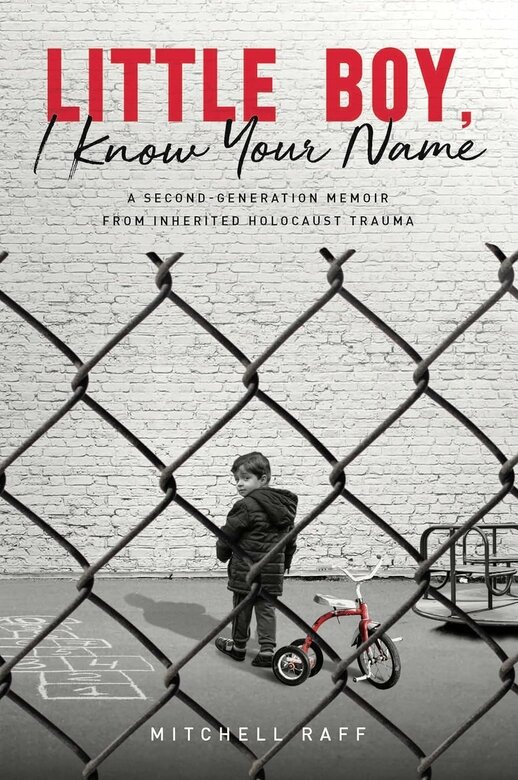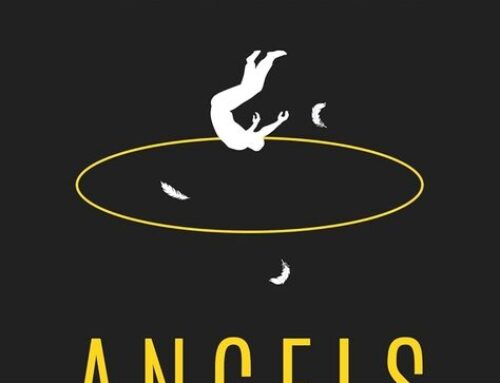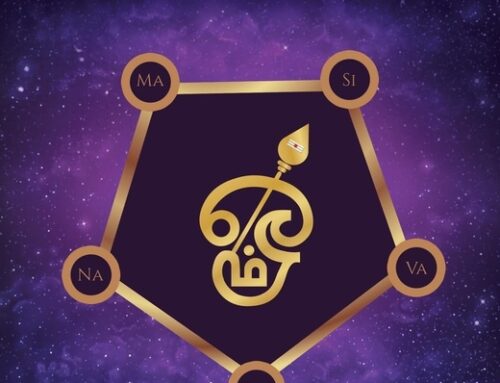
Gripping autobiographical reflections from a child of Holocaust survivors, Little Boy, I Know Your Name by Mitchell Raff is a visceral, heartrending, and timely work of history and memoir.
Growing up in a non-traditional Jewish family permanently scarred by concentration camps and gulags, young Mitchell also had to navigate split custody with his unpredictably violent mother, acting as guardian to his half-sister while having to endure familial abuse. When he is uprooted and moved to Israel, he doesn’t escape his mistreatment, which is compounded by a life of isolation and uncertainty about the future, without his beloved family members there to watch over him.
Finding allies and unexpected kindness where he can, Mitchell details the unbelievable battles of his young life, both in Israel and America, from misunderstood trauma responses and sex addiction to broken cycles of intimate abuse and long-form depression. Infidelity, marriage, the burden of childcare, and countless other emotional ills play out on these pages and in his life, making Raff’s story a testament of resilience and repentance – too often for the sins of others.
As the child of survivors, and a survivor of violence in so many forms as a child, Raff has alchemized his pain and the legacy of tragedy into profoundly accessible wisdom about healing, purpose, and the essential autonomy of every life. Displaying a self-awareness that can only come through intense introspection and a lifetime of reflective analysis, he gives voice to a struggle that millions of people still battle with to this day, for a story that is at once intensely personal and historically significant.
There has been a recent awakening of awareness to trauma and healing therapies, making some of the stories and anecdotes from this challenging narrative even harder to bear. The psychological toll the author endured is unfathomable, yet he reflects with empathy and attempts to understand the unfair treatment he suffered for so many years, sometimes from the very sources he had turned to for love. One of the most powerful lines still echoes long after reading, summarizing much of the existential struggle this book attempts to unravel – the sinister intertwining of violence and victimhood, revenge and pacifism, moving forward and being held back by the past: “If I and many others like me are children of the Holocaust, the Holocaust is a weirdly absent parent. We feel its presence but never enough to truly know it.”
The language is masterfully woven throughout, and there is a rawness of truth and tragedy percolating beneath every line of the narrative. The vocabulary use is lyrical without feeling stilted, and while much of the dialogue is short and straightforward, it captures the intensity of meaning that can be buried within simple words and exchanges. Given the public’s renewed focus on Jewish history, this book offers a powerful reminder of the unparalleled horrors of the Holocaust, and the steady funnel of intergenerational trauma it has inflicted on the world. This is not intended to be an easy read, but it is an essential one, regardless of ethnicity, religion, or age.
Book Links
STAR RATING
Design
Content
Editing
Get an Editorial Review | Get Amazon Sales & Reviews | Get Edited | Publish Your Book | Enter the SPR Book Awards | Other Marketing Services























Leave A Comment